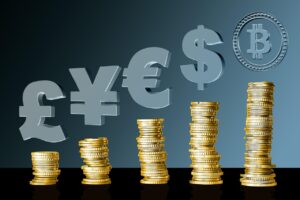Turkey raises rates more than expected, targets inflation
Turkey’s central bank on Thursday raised interest rates to 25 percent in a surprise move that signals a continued departure from previous policies, which focused on keeping rates low. Turkey raised interest rates more than expected.
The increase of 7.5 percentage points follows a rise to 17.5 percent from 15 percent last month. Most economists had expected the bank to raise its key interest rate on Thursday to “just” 20 percent.
“Recent indicators point to a continued increase in the underlying inflation trend,” the central bank said.
“Monetary tightening will be further strengthened as much as necessary in a timely and gradual manner until a significant improvement in the inflation outlook is achieved,” it said.
The Turkish lira rose 1.5 percent against the dollar after the bank’s clear signal that it was stepping up its fight against inflation and efforts to support the troubled currency.
Capital Economics analyst Liam Peach said the rate hike was “much bigger than expected” and “will go a long way to reassuring investors that the transition back to policy orthodoxy is on track”.
Many economists disagreed with Turkish President Recep Tayyip Erdogan’s previous monetary policy, which was considered unorthodox.
But Erdogan infused his government with market-friendly faces after winning a difficult election in May that came in the heat of one of Turkey’s worst economic crises in decades.
They immediately launched a new battle against inflation, which peaked at 85% last October and is once again on the rise.
The team allowed the lira to start depreciating against the dollar in an attempt to ease the pressure on depleted treasuries.
They also introduced a series of more technical steps aimed at rebalancing the economy and restoring the confidence of both consumers and Turkey’s foreign investors. Video length 02 minutes 33 seconds02:33
A new national approach to the economy
The central bank raised its key interest rate to 15 percent from 8.5 percent at the first meeting chaired by former Wall Street chief Hafize Gaye Erkan in June 2023.
Erdogan had pushed the nominally independent institution to reduce borrowing costs out of a lifelong belief that high interest rates cause, rather than cure, inflation.
But Erkan and Finance Minister Mehmet Simsek, a former deputy prime minister who returned to the government in June, had advocated a more slow-moving approach over the past two months that sought to restore market confidence without causing too much short-term pain.
That seemed to change when July’s annual inflation rate rose back to 47.8 percent thanks to billions of dollars in social spending Erdogan made during his election campaign.
The central bank expects the annual inflation rate to peak at 60% between April and June next year.
“There is still a large gap between the policy rate and both current and expected inflation,” warned ING Bank’s chief economist Muhammet Mercan.
Some analysts suspected that Erkan and Simsek feared a negative reaction from Erdogan if they were to push their reforms too strongly.
Erdogan fired a central banker four months into his attempt to raise interest rates in late 2020 and early 2021. He had previously dismissed two others for questioning his position.
The Turkish lira is, or at least was, often used by currency traders in what were called carry trades. This is a currency strategy that works well when the two currencies involved are at a standstill, which the Turkish lira has not been.
About the Viking
With Viking’s signals, you have a good chance of finding the winners and selling in time. There are many securities. With Viking’s autopilots, price data, tables and stock prices, you can sort out the most interesting ETFs, shares, options, warrants, funds, etc.
Click here to see what Vikingen offers: Detailed comparison – Stock market program for those who want to become even richer (vikingen.se)













